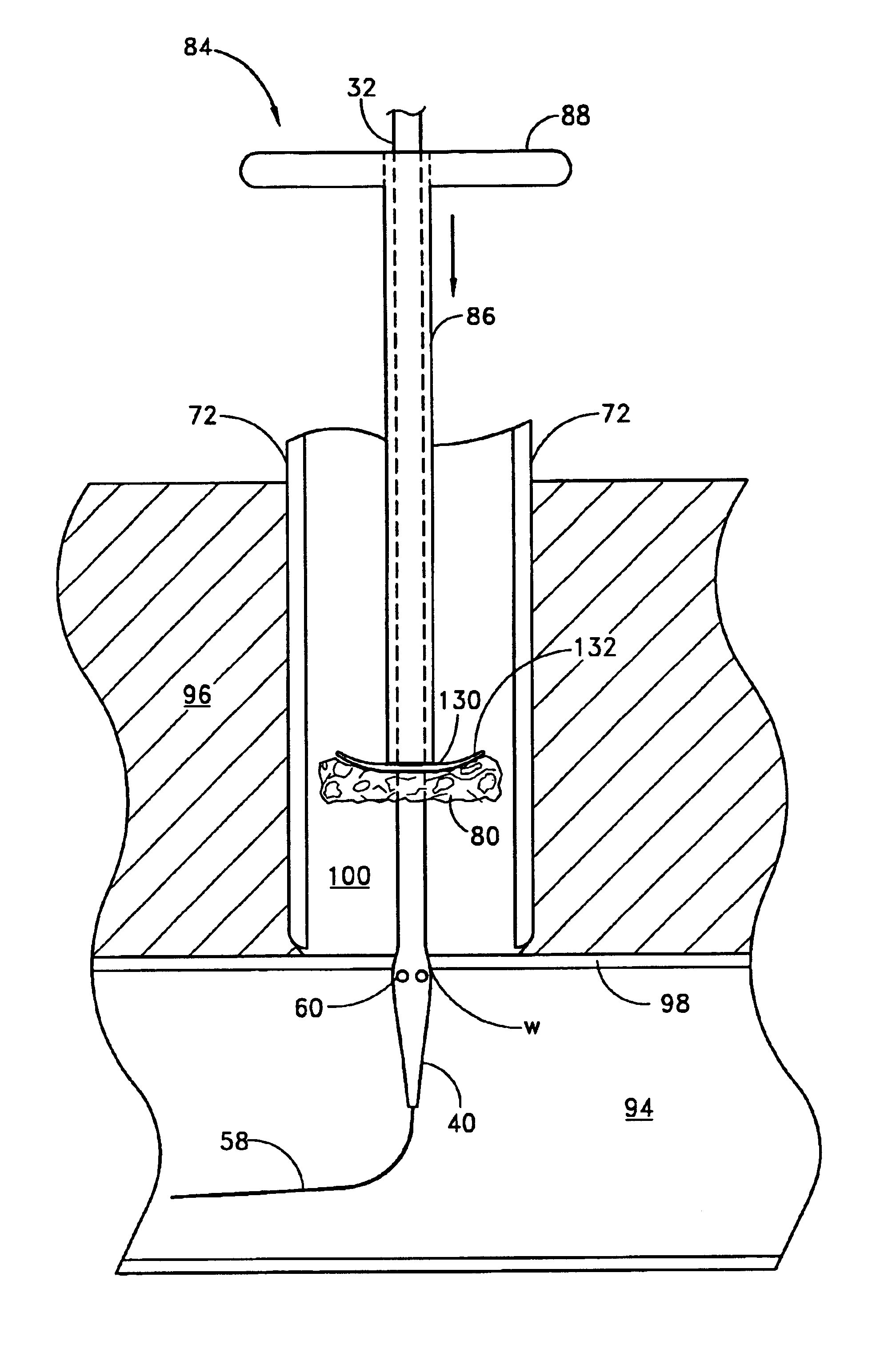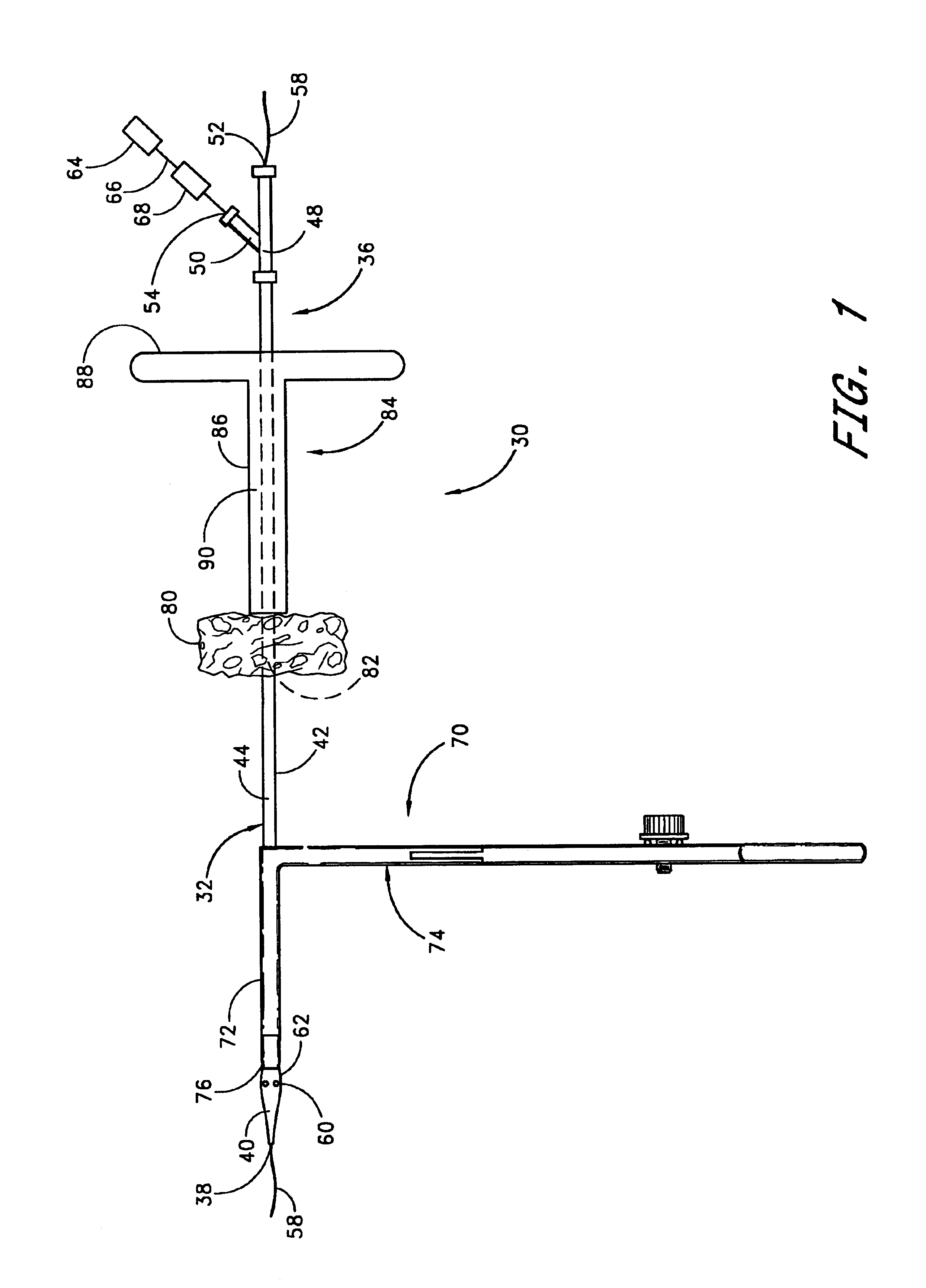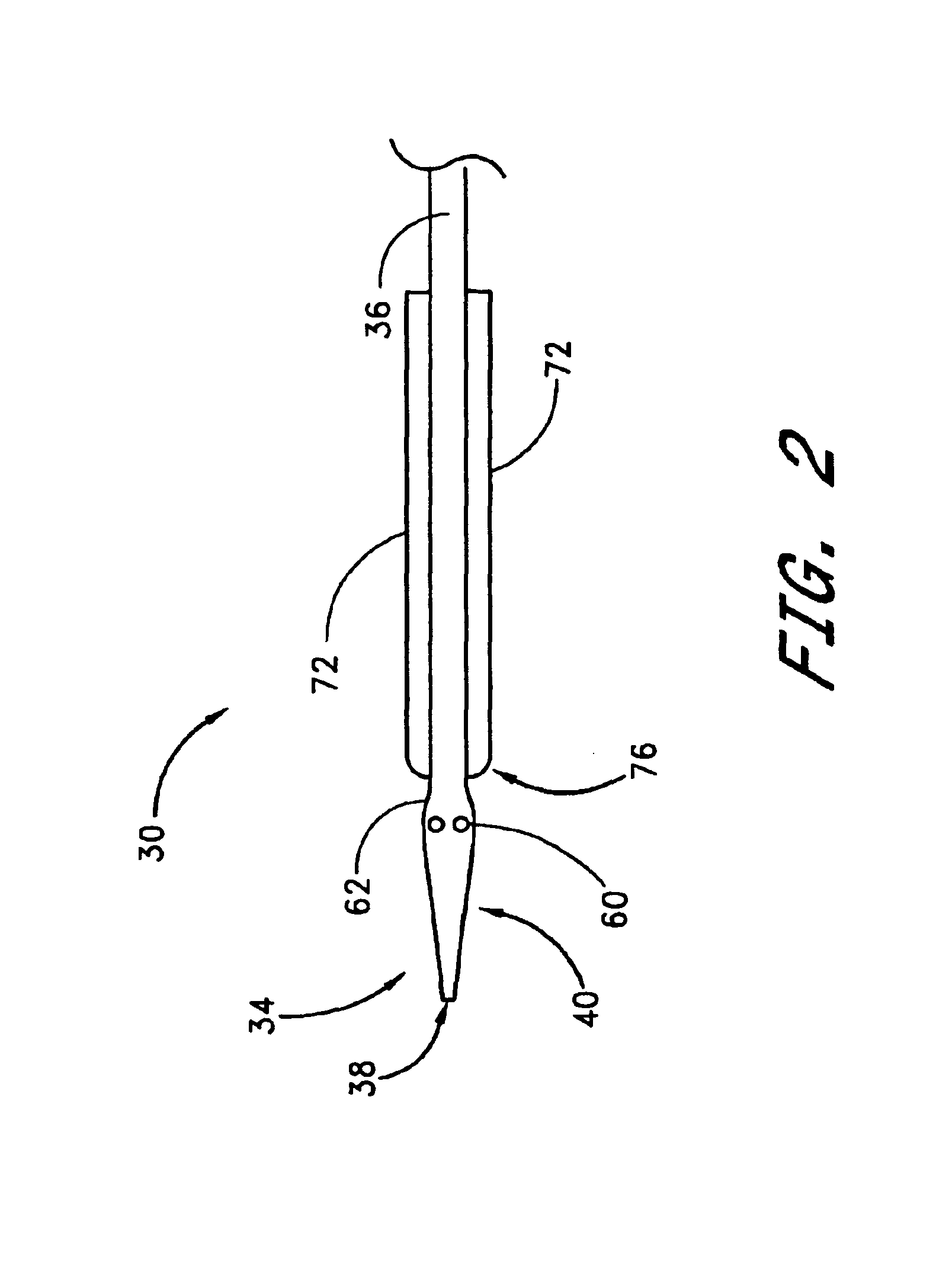Method and apparatus for closing vascular puncture using hemostatic material
a technology of hemostatic material and vascular puncture, which is applied in the field of method and apparatus for closing vascular puncture with hemostatic material, can solve the problems of increasing the risk of both infection and reopening, unable to close the puncture wound, and unable to cure wounds
- Summary
- Abstract
- Description
- Claims
- Application Information
AI Technical Summary
Benefits of technology
Problems solved by technology
Method used
Image
Examples
Embodiment Construction
[0040]The present apparatus and method is especially useful for closing vascular puncture wounds that are difficult to access and / or visualize. It is difficult to directly and accurately modify the wounded blood vessel in order to close such wounds. Additionally, there are pitfalls associated with directly modifying the blood vessel. For example, since the clinician cannot see the wound, it is difficult to correctly place closure media such as sutures, staples, or clips. Incorrect placement of such closure media likely results in inadequate closure; the puncture wound remains open, perhaps without the clinician being aware. Additionally, incorrect placement of closure media may cause permanent damage to the vessel, including tearing and additional puncture wounds. Further, if closure media extends through the wound and into the blood flow, this media can increase the likelihood of thrombus formation or could introduce potentially toxic substances into the bloodstream. Of course, clo...
PUM
 Login to View More
Login to View More Abstract
Description
Claims
Application Information
 Login to View More
Login to View More - R&D
- Intellectual Property
- Life Sciences
- Materials
- Tech Scout
- Unparalleled Data Quality
- Higher Quality Content
- 60% Fewer Hallucinations
Browse by: Latest US Patents, China's latest patents, Technical Efficacy Thesaurus, Application Domain, Technology Topic, Popular Technical Reports.
© 2025 PatSnap. All rights reserved.Legal|Privacy policy|Modern Slavery Act Transparency Statement|Sitemap|About US| Contact US: help@patsnap.com



